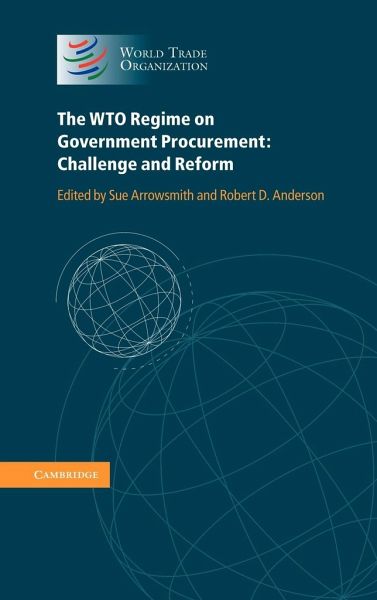
The WTO Regime on Government Procurement
Challenge and Reform
Herausgeber: Arrowsmith, Sue; Anderson, Robert D.
Versandkostenfrei!
Versandfertig in 1-2 Wochen
252,99 €
inkl. MwSt.
Weitere Ausgaben:

PAYBACK Punkte
126 °P sammeln!
Explores the increasing importance of the WTO Agreement on Government Procurement in the multilateral trading system and the resulting challenges.




